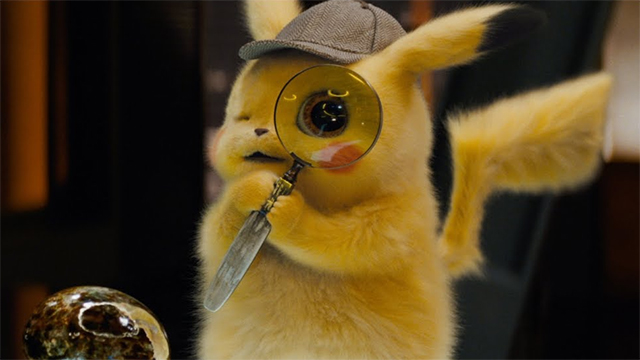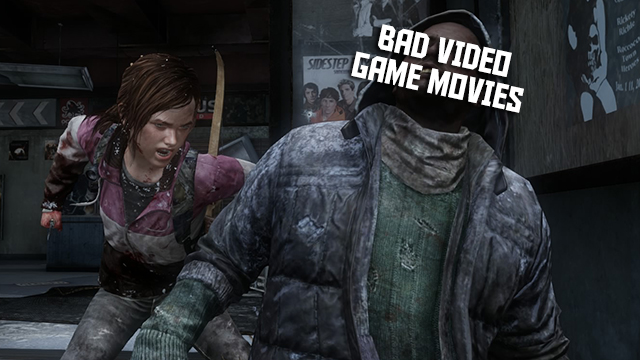It’s not new to say that video game adaptations are usually pretty bad; it’s a take as old as time. But with the relatively good reception of the Sonic the Hedgehog movie and Detective Pikachu, that notion is shifting. Both films paid respect to their source material and seemed like anomalies, but it’s a pattern continuing with the newly announced The Last of Us TV series hitting HBO. And this form of respect is something video game movie or TV adaptations have sorely missed more often than not.
Many of the most infamous bad films based on game franchises — Street Fighter, Lara Croft: Tomb Raider, Super Mario Bros. — were victims of their time, but also of the ages of their creators and the medium. Most games in the ‘80s and ‘90s didn’t have a lot of narrative meat to grab onto, which makes the process of building out a good plot and deep characters even harder. And the perceived toy-like quality of video games probably didn’t truly capture many people in their 30s, 40s, and beyond that were also making movies.
ALSO: Uncharted movie picks up Shrek and Zorro star Antonio Banderas
While there were other factors like studio interference, these projects failed because they were essentially being sprung onto people lacking the deep-rooted and long-standing respect for the young medium. For example, Steven De Souza, the director of the Street Fighter movie, said he was “very familiar” with the game, but then proceeded to explain it by saying that it was because his “son had just put his first year of college into that machine.”
Feigned, distant familiarity is better than game companies (especially Nintendo) being pretty hands-off, but regardless, this surface-level knowledge from outsiders results in bad films only pantomiming their source material with cheap segments Doom‘s bad first-person parts or Max Payne‘s laughable bullet time sequences. And even the “mediocre-but-still-watchable” ones, like some of the Resident Evil or Silent Hill films, aren’t always good and authentic.
Cracking the case

After the years of disappointment following the first cheesy-but-honest Mortal Kombat movie, we are now finally beginning to see what happens when creators and the license holders truly understand their properties and make solid movies. Detective Pikachu was an unexpected take on the Pokemon tale that didn’t include Ash, which was something director Robert Letterman specifically wanted to do for ingenuity’s sake. A live action Pokemon movie in the late ‘90s would have retold Ash’s tired tale with probably the most base-level “hey, look it’s that Pokemon you know” references any old businessman could lazily throw in there.
Detective Pikachu created a world that took what was there and intelligently expanded on it in a way that just felt right. Along with having over a year to design the characters to make it look believable, creating a familiar yet new world was part of the “secret” that propelled the electric rodent into having the second highest-grossing video game film adaptation of all time. Actually being a good movie with a decent mystery was crucial, too, but the steps taken to make it a faithful Pokemon movie full of small and large nods gave it a soul that most other game movies didn’t have. The outro credits alone almost have more heart than all of the video game adaptations of the last 30 years combined. Almost.
The Sonic movie wasn’t quite as novel, but it still adhered to many of the same tenets as Pikachu’s 3D debut. An acceptable, easy-to-follow story gave it a solid foundation and the nods to Olive Garden Sonic’s lore were also great, but perhaps the most telling signal was Paramount’s willingness to redesign Sonic after that bizarre Adult Swim-esque initial trailer.
That David Cage game-ass, Five Nights At Freddy’s nightmare puppet cosplaying as a furry young human-hedgehog hybrid called Sonic was about as far away from video game Sonic as it could possibly be. And it would have been remarkably easy and inexpensive to push forward and let that damned freak live on in cinema history. But that thing wasn’t Sonic and redesigning him took a lot of time and money that Paramount didn’t need to spend and, given how the result makes the film more authentic, it was a good choice.
The Best of Us

We don’t know much about The Last of Us TV series yet it still had the right announcement that inspires confidence. Naughty Dog President Evan Wells is a noteworthy inclusion, but having Neil Druckmann write and produce the series is the key factor here. Being creative director of The Last of Us, The Last of Us 2, Left Behind, and related graphic novel, Druckmann has an intimate, almost unmatched knowledge of the lore and characters, making him the perfect candidate to be on board.
Video game movies have involved fans (Duncan Jones and Warcraft), creatives (Jordan Mechner and Prince of Persia), and publishers (Ubisoft and Assassin’s Creed) before, but they haven’t all worked out. While those games may have decent stories in them, they mostly excel in lore and interactivity over raw storytelling and have struggled in a medium where that raw storytelling takes center stage. Druckmann has the talent to better make the jump, as his unforgettable character work and worldbuilding already speak a cinematic language that would easily work with the higher standards of the silver screen. Other games narratives aren’t quite as multifaceted or as expertly crafted and is partly why they’ve failed before. Someone knew that anything related to The Last of Us deserved to have him behind the helm.
ALSO: Check out The Last of Us 2 cartoon that Sony canceled
Making this a TV show instead of a movie is also a deft move, given how The Last of Us is better positioned to be a limited series. Aside from it literally being segmented by episodic seasons, The Last of Us is The Last of Us because it takes players on a long journey with a rich universe worth slowly taking in. It would be a lot and almost unfaithful to cram that into two hours since it would lose something in that downsizing process. A multi-episode television series lets the characters and world breathe and develop and is something HBO hasn’t been scared to do, as evidenced by the brilliant Chernobyl and Watchmen.
Watchmen is coincidentally another example of one medium gracefully moving into another. Zack Snyder’s film is impressive yet it is just a near exact translation of what Alan Moore and Dave Gibbons started back in 1986. The HBO mini-series not only took that graphic novel as a base, but elegantly translated those core pillars to another form of entertainment. And it managed that by having only the most tangential support from one of its original creators, which also speaks at the relative easy other mediums have when being adapted.
Seeing as though The Last of Us series is being headed by its original creative director and being made into a TV show instead of a movie, it’s evidence of yet another video game adaptation being made with utter respect for its source material. It’s part of a welcome trend that will hopefully carry on into the future, something both upcoming Mortal Kombat movies have a chance to do with their R ratings. Faithful video game adaptations seemed like a dream at one point, but if Sonic can do it and get acknowledged by Druckmann for doing so, then it’s not too difficult to imagine that others could follow in his footsteps, too.








